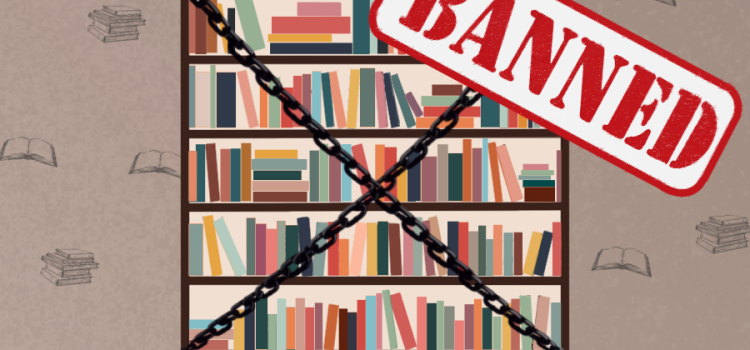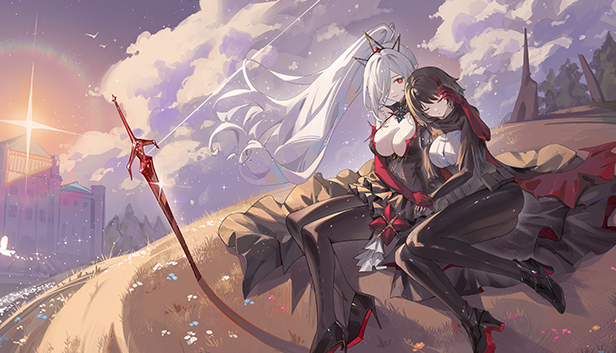
Introduction
In a world where the censorship of literature is on the rise, voices of opposition emerge to uphold the fundamental right to read. One of the most influential voices in this battle is best-selling author Rebecca Yarros. In this article, we delve into Rebecca Yarros’ insightful perspective on the multifaceted issue of censorship in literature, and how it affects intellectual freedom, diversity in narratives, and the transformative power of storytelling.
Rebecca Yarros: A Literary Icon
Rebecca Yarros is a celebrated author known for her emotionally charged narratives and literary contributions. Beyond her success as a writer, she has become a prominent advocate for intellectual freedom, emerging as a vocal defender of the right to read and explore a diverse array of ideas and voices through literature.
Yarros’ journey as an author has brought her face to face with the challenges that literature encounters in a society marked by heightened concerns about the content and themes of books.
The Complex Issue of Censorship
Recent years have witnessed the growing trend of censorship in literature. Books, both classic and contemporary, have increasingly become subjects of scrutiny and controversy. The motivations behind these censorship efforts are diverse, encompassing a wide range of concerns related to book content and themes.
Book bans and challenges often arise from concerns such as:
- Inappropriate Content: Some bans stem from concerns that certain content is unsuitable for specific age groups, particularly young readers.
- Offensive Language: The presence of offensive language, racial slurs, or profanity frequently triggers bans.
- Sexual or Explicit Material: Books containing sexual content or explicit scenes are often subjected to scrutiny and censorship.
- Political or Ideological Differences: Specific political or ideological viewpoints expressed in books may lead to bans.
- Religious Objections: Works that challenge or question religious beliefs may find themselves on the banned list in certain communities.
- Representation and Diversity: Books that introduce or explore diverse perspectives, identities, and backgrounds may be subjected to bans.
- Gender and Sexuality: Literature that delves into gender identity, sexual orientation, or LGBTQ+ themes is often targeted for censorship.
Censorship often results in the removal of books from school curricula, public libraries, or public access, limiting the availability of diverse narratives and ideas to readers. The implications of these actions are profound, and they challenge the principles of intellectual freedom.

Rebecca Yarros’ Thoughtful Perspective
Rebecca Yarros offers a thoughtful and multifaceted perspective on the issue of censorship in literature:
1. Intellectual Freedom
At the heart of Yarros’ opposition to censorship is the vital concept of intellectual freedom. She passionately advocates for the right of individuals to access and explore a wide range of ideas and perspectives through literature. Yarros firmly believes that intellectual freedom is a cornerstone of a democratic society and that the freedom to read what one chooses is a fundamental aspect of this liberty.
The censorship of books limits the exploration of ideas and creative thinking. It confines readers to narratives approved by those in authority, restricting the freedom of individuals to form their own opinions. Yarros staunchly opposes this infringement on the readers’ freedom.
2. Empowering Readers
Rebecca Yarros recognizes the transformative power of books to educate, enlighten, and empower readers. By opposing censorship, she ensures that readers have the autonomy to make their own choices about what they read. Literature can expose readers to a broad spectrum of experiences, beliefs, and worldviews, enabling the development of critical thinking skills, empathy, and a deeper understanding of the world.
Books enable readers to traverse the lives of characters from diverse backgrounds, grapple with complex moral dilemmas, and immerse themselves in different cultures. This exposure to varied perspectives serves as an educational tool that broadens readers’ horizons. Censorship obstructs this educational potential and deprives readers of the opportunity to broaden their horizons.
3. Fostering Open Dialogue
Yarros firmly believes in the value of open dialogue and discussions. Literature often acts as a catalyst for crucial conversations. Books that delve into issues of social justice, inequality, mental health, or other critical topics can spark meaningful discussions. Reading about diverse characters and experiences can create empathy and understanding, paving the way for important conversations about the complexities of our world.
Censoring or banning books that address challenging subjects stymies opportunities for dialogue. It prevents readers from engaging with the experiences and perspectives of others, limiting the exchange of ideas and the growth of understanding.
4. Amplifying Diverse Voices
One of Yarros’ primary concerns about censorship is its impact on diverse voices in literature. She recognizes that censorship often disproportionately affects marginalized communities and stifles the exploration of stories reflecting different backgrounds and experiences.
Literature plays a pivotal role in amplifying the voices of those who have historically been marginalized or silenced. It provides a platform through which underrepresented voices can share their stories and perspectives. Banning or censoring these voices perpetuates inequality and silences those who have been historically excluded from the narrative.
Rebecca Yarros is a fervent advocate for promoting books featuring diverse characters, themes, and experiences. She actively supports and celebrates literature that encourages inclusivity and representation.
Rebecca Yarros’ Advocacy
Rebecca Yarros is not merely a passive advocate; she takes action to protect and promote intellectual freedom. Her advocacy includes:
- Participation in Literary Events: Yarros actively participates in literary events, discussions, and forums dedicated to the freedom to read. She uses her platform to raise awareness about the importance of preserving intellectual freedom and opposing censorship.
- Support for Banned Books: Yarros actively supports banned books and encourages readers to engage with literature that has faced censorship. She highlights and recommends these books to her readers, underscoring their significance.
- Collaboration with Literary Organizations: Yarros collaborates with literary organizations and groups that work to combat book bans. Her involvement in these initiatives is aimed at promoting intellectual freedom and countering censorship.
- Advocacy through Her Work: In her own literary works, Yarros explores themes related to censorship, intellectual freedom, and the power of literature to inspire change. Her novels often delve into the impact of censorship on individuals and communities, providing a compelling narrative that resonates with readers.
Conclusion
Rebecca Yarros’ firm stance against censorship in literature is a powerful affirmation of the enduring power of books and the critical importance of preserving the freedom to read. In a world where literature faces increasing challenges, her advocacy serves as a reminder that authors and readers play a vital role in safeguarding the diversity of voices and ideas found within the pages of books. As an author and advocate, Rebecca Yarros stands as a beacon of intellectual freedom, inspiring others to join the fight against censorship and in defense of the written word.










